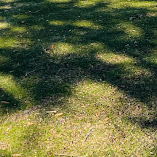I’m thinking about our granddaughter’s birthday today, and wondering how free she will be to make decisions about her one precious life and body in the decade between now and her 21st birthday.
I fear her freedom will be sharply limited by the Republican party in cahoots with a theologically compromised evangelical Christianity and a politically compromised judicial system.
Under no circumstances would she have the choice of a medically safe abortion. She would not be free to enjoy a legally-protected loving relationship with another woman. She would not be free to change her gender if she realizes she is not the gender she was assigned at her birth.
People eager to limit other’s rights should focus on one person they truly love and ask what if? about their futures and freedom. How doing that would change the discussion!
Now to the politics of it…
The New York Times published an article this morning about Doug Mastriano, who is running for the Republican party’s nomination for governor of Pennsylvania. He’s very conservative, so much so that the Republican establishment in the Keystone State is said to be worried that he might get the nomination.
The article was accompanied by a picture of Mastriano wearing a t-shirt on which is printed, “Walk as free people,” and under it in small print, “John 8:36,” or so I think it says. That citation is a bit fuzzy, and that’s not how John 8:36 reads. In any case, what purports to be a Christian scriptural citation is spread across the chest of a man running for governor of a very diverse state.
It tells all you need to know about whose votes are important to him.
In trying to find exactly where Mastriano got his “walk as free people” slogan, I came across a June, 2021, article about a rally held to protest pandemic restrictions in Pennsylvania…masks, closings, distancing, vaccinations, the whole bit. In remarks to attendees that day, Mastriano is quoted as having said, “We need to walk as free people. You’re sovereign over your own body.”
Judging from his stance on abortion, honestly should have compelled him to add, “except when you are pregnant.”
Beware of politicians wearing their religion on their chests.






